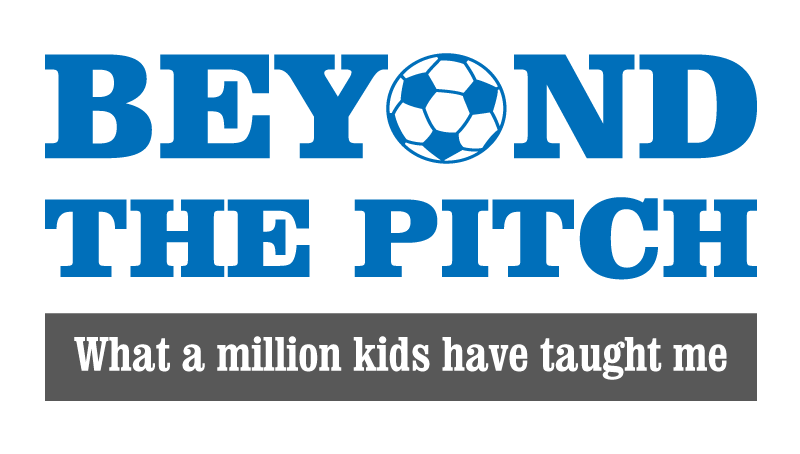
© Rawpixel.com / Adobe Stock
What A Million Kids Have Taught Me About Parenting
March 30, 2020
Raising kids is hard. Joyful, but hard. We (me included) start off as a bit naïve, full of hope and have great intentions of being the best parents possible. And some days we are. Other days leave us wondering if we have what it takes. Yes, even those of us with graduate degrees in mental health. That’s because we don’t know what we don’t know. We haven’t yet experienced first-hand the ups and downs of this amazing, all-encompassing, wonderful and draining and energizing and sometimes scary role.
The result is often a lot of misunderstanding and frustration. Kids are literally and figuratively a moving target. Each child is a unique puzzle of temperament, cognition, emotion and personality that we get to help piece together and guide toward being the best version of who they are meant to become—all while their needs continue to evolve.
"Though hard, the path of raising kids is so joyful."
Adults are also a combination of temperament, life experiences, knowledge and coping skills and use those things to form opinions, guide decisions and control behavior. Sometimes the combination works really, really well. Sometimes it doesn’t. Regardless, it’s imperative we pick ourselves up, learn from the experiences and do better next time.
Though hard, the path of raising kids is so joyful. The funny things children do and say, the sweet tender moments of uninhibited displays of affection, the learning, the wonder, the playful interactions all outweigh the more difficult times.
I’ve learned a lot about children over the past 25 years and from serving more than a million kids nationwide. Too much to share in one post, but for now here are my top three things every parent should consider.
1. Listen to the flight attendant.
You know, the part where they tell you to put on your oxygen mask first before helping others? My point? You can’t effectively care for others if you can’t breathe. The daily duties of being a parent, a spouse, an employee, a friend, a sibling, etc. can be overwhelming if we aren’t careful.
Dedicate some time for yourself to recharge by doing something you enjoy. Even if it’s only for a few minutes a day. Get it in your head that self-care is a necessity, not a luxury, and certainly not selfish. It’s like oxygen, you need it to survive. To be honest, carving out time for myself is one of the most difficult things for me. I’m learning though!
2. Don’t let the tail wag the dog.
Getting caught up in what others want, being afraid of falling behind or being worried about your family’s image can be detrimental to the overall health of your family dynamic. Remember you are the boss of your life (and regardless of what your child may say you most definitely are the boss of them).
Be informed by others but stay true to your values. Whether the tail is your child or society, think before you act and ask yourself does this decision really fit with what works best for my family, my belief system—your sanity?? Or are you making the choice based on some outside influence that shouldn’t really matter?
3. Perfection is a myth.
There is no such thing as the perfect parent. Or the perfect family. Regardless of what social media displays we all have our ups and downs and no one really “wakes up like that.” Parents can easily fall into the trap of curating the perfect online life. But life is messy and ignoring that fact can be harmful and exhausting, especially if you are ignoring the tough stuff. Living authentically is actually pretty liberating. When we embrace life’s ebbs and flows we can more easily relish the great times, understand that life can sometimes be mundane and buckle up during the more difficult times life throws us.
Each situation serves an important purpose and by recognizing the reality of life we learn to truly see our children, our partners, our friends and ourselves. We learn to be present, learn perseverance, gain inner strength and have more grace for others. Best of all when we live authentic lives we find more joy because we can cultivate deeper, more genuine relationships, we aren’t worried about keeping up, being found out or being perfect and we can find the support we need. What a relief.
What topics do you want to hear about? Let us know by commenting below.
Be kind to yourselves and others.
Until next time,

Recent Posts
Revive From Burnout
It’s been a while since I’ve written. Finding the time and my voice has been a bit challenging. And honestly I’ve been pretty burned out. Here are three things I’ve done to get back on track and revved up for a new year. Read more.
Tips for Back-to-School 2021
Are you wondering how to manage the back-to-school process this year? Emotions about returning to school may be running a little high. Read on to discover some tips for coping. A little pre-planning will go a long way. Read more.
Behavior on the Slide? Learn the Signs of Stress in Your Child
A child’s behavior can reveal a lot about how they’re feeling. Check out how you can help your child learn to understand and manage their emotions in healthy ways. Read more.






parenting styles for a strong willed child
Having a parented a strong-willed child myself I can relate to the frustration you might be feeling. You asked about parenting styles. I chose to use an Authoritative parenting style. But, you might actually be asking about strategies. Depending on the age and situation there are definitely things you can be doing if you aren’t already:
Be consistent and follow through. When you set a boundary (or rule) it can help to tell the child why you’ve set it. It is also important to make sure they understand the consequences if they choose to break it. You must follow through immediately after the rule is broken (the first time, not after 5 warnings or counting). You don’t have to be punitive about it. In fact, staying calm and taking the emotion out of the conversation is helpful. You can simply restate the rule/boundary and something along the lines of, “It’s a bummer you chose to (fill in the blank with what they did) and as a consequence, you now have (fill in consequence e.g. time out, lost screen time, etc.)” Make sure to separate the child from the behavior. Let them know they are not bad, but their behavior is not okay.
Give options when asking them to do something. You want their shoes on? Give them choices – “I can help you or you can do it yourself.” Sometimes asking is not an option – “We need to leave now, I can put you in the car or you can climb in on your own it’s your choice.”
Catch them doing something good and praise them for it. Wow, nice job picking up your toys! I appreciate that! You worked really hard at that!
Hang in there! It’s hard to be patient and very hard to parent them sometimes. Having a strong will is a great thing when channeled in a positive direction. It gives people courage and drive when they’re older! You’ve got this!